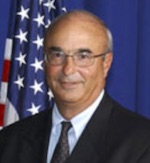Budweiser’s use of “America” on millions of bottles and cans, most of which end up in the trash or worse, is a violation of federal law against symbols that imply government endorsement.
Lawyers cite Section 7.29 (d) of the Alcohol and Tobacco Tax and Trade Bureau, U.S. Treasury, that forbid anything that might imply government endorsement of a “malt product.”
|
|
Practices prohibited include “Flags, seals, coats of arms, crests, and other insignia. Labels shall not contain, in the brand name or otherwise, any statement, design, device, or pictorial representation which the appropriate TTB [Alcohol and Tobacco Tax and Trade Bureau] officer finds relates to, or is capable of being construed as relating to, the armed forces of the United States, or the American flag, or any emblem, seal, insignia, or decoration associated with such flag or armed forces.”
“Nor shall any label contain any statement, design, device, or pictorial representation of or concerning any flag, seal, coat of arms, crest or other insignia, likely to mislead the consumer to believe that the product has been endorsed, made, or used by, or produced for, or under the supervision of, or in accordance with the specifications of the government, organization, family, or individual with whom such flag, seal, coat of arms, crest, or insignia is associated.
Lawyers say TTB should be enforcing this section which prohibits the use of “America” on bottles and cans since it implies some sort of government approval. They are mystified that the labeling has gone on with knowledge of TTB and say the only explanation is “politics.”
TTB Says It Protects the Public
TTB says that it takes "tremendous pride in its strategic mission to protect the public." It spells out its activities in detail on its website.
It says it monitors “more than 100,000 alcohol labels and ads to make certain that none “mislead the consumer.”
TTB investigators conduct product integrity field investigations to check that industry members are following all federal labeling and production standards for alcoholic beverages.”
AB InBev, based in Belgium, owns more than 200 brands worldwide including Stella Artois and Corona. Last year it purchased its main competitor, Miller, for $100 billion. Ricardo Marques, VP, said last year that with Americans taking part in the Summer Olympics and the Copa America Centenario soccer tournament being held in the U.S., that the Budweiser cans and bottles with “America” on them are an ideal way to salute the U.S. “We are embarking on what should be the most patriotic summer that this generation has ever seen,” he said.
Use of America Called “Un-American"
“Budweiser calling itself ‘America’ is the most un-American thing I’ve observed in quite a while,” says Bill McCameron, micro-brewer who hosts brewstuds.com.
Owner AB InBev is doing it because Budweiser is losing market share, he says. Their Achilles heel is the fact that they’re foreign owned while their core customers are red-blooded Americans, he adds.
Budweiser is still brewed in U.S. locations such as St. Louis and A-B InBev does employ Americans in those facilities, he notes.
However, he says “The lion’s share of the profits go overseas and are largely subject to a system designed by the Belgian government for the purpose of tax avoidance.” A European Union commission has ordered the company to recover $763 million from 35 different companies it says have taken part in illegal tax breaks.
AB InBev is accused of receiving shelter to 140 million euros of profit by sending the funds to a company that exists only on paper.
McCameron, saying that for him Budweiser “ceased being American” when it was sold in 2008, says that the company, “while draping itself in the American flag, is also attacking an entire industry and culture of real American entrepreneurs, American workers, and loyal American consumers.”
Budweiser ads, he notes, have paired the beer with such “quintessential American activities” as tailgating, grilling burgers, and watching basketball, baseball, American football and stock car racing.

 John Manfreda, Adminstrator, Alcohol and Tobacco Tax and Trade Bureau
John Manfreda, Adminstrator, Alcohol and Tobacco Tax and Trade Bureau
 There’s a fine line between newsjacking and taking advantage, aka ambulance chasing. Our job as PR professionals is to tread it carefully.
There’s a fine line between newsjacking and taking advantage, aka ambulance chasing. Our job as PR professionals is to tread it carefully. PR firms need to be mindful of ways their work product may be protected by the attorney-client privilege whenever working with a client’s internal legal team or its external legal counsel.
PR firms need to be mindful of ways their work product may be protected by the attorney-client privilege whenever working with a client’s internal legal team or its external legal counsel. Manuel Rocha, former US ambassador and intenational business advisor to LLYC, plans to plead guilty to charges that he was a secret agent for Cuba.
Manuel Rocha, former US ambassador and intenational business advisor to LLYC, plans to plead guilty to charges that he was a secret agent for Cuba. CEO mentoring is an often-overlooked aspect of why CEOs are able to make good decisions, and sometimes make bad ones—all of which intersects with the role and duties of a board.
CEO mentoring is an often-overlooked aspect of why CEOs are able to make good decisions, and sometimes make bad ones—all of which intersects with the role and duties of a board.  How organizations can anticipate, prepare and respond to crises in an increasingly complex world where a convergent landscape of global challenges, threats and risks seem to arrive at an unrelenting pace.
How organizations can anticipate, prepare and respond to crises in an increasingly complex world where a convergent landscape of global challenges, threats and risks seem to arrive at an unrelenting pace.


 Have a comment? Send it to
Have a comment? Send it to 
No comments have been submitted for this story yet.